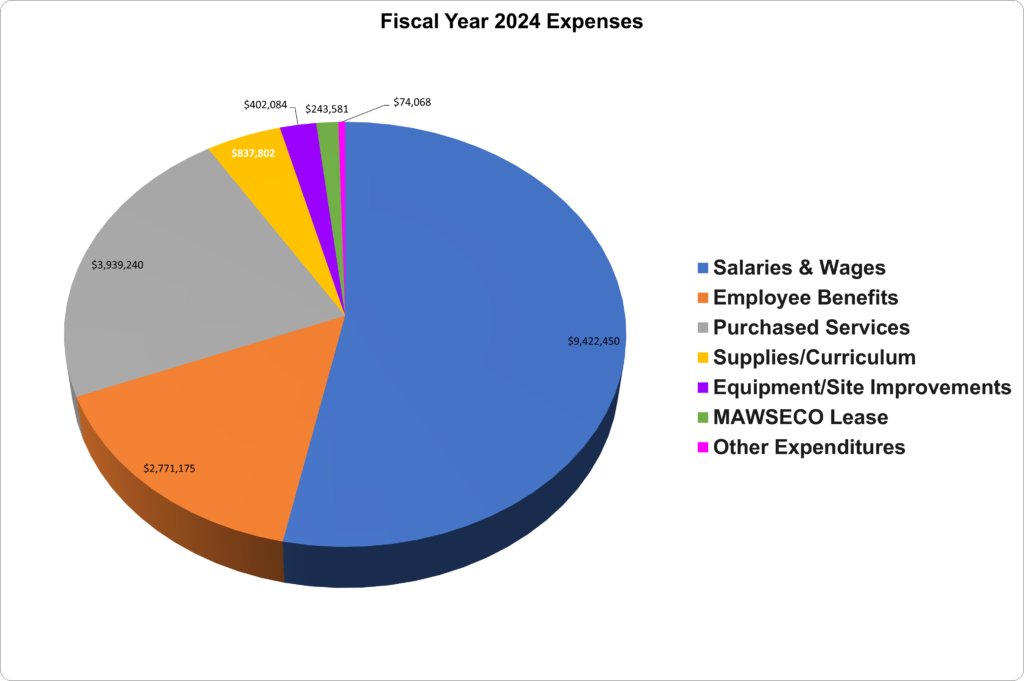Students at Howard Lake-Waverly-Winsted Public Schools will benefit from the operating levy because it will provide the revenue to:
- Attract and retain quality staff
- Keep class sizes low
- Restore teaching positions that were recently cut
- Update and enhance classroom resources and curriculum used for learning
- Enhance career training pathways to better prepare students for post-graduation
The school district will collect property taxes that equal $600 per pupil, or, based on this year’s enrollment, about $768,000 for each of the next 10 years. The amount would increase each year by the rate of inflation beginning with taxes payable in 2025.
If the operating levy is not approved, the district will be forced to undertake further and more drastic budget cuts. Even with those cuts we do not believe we can make enough budget reductions to solve our financial challenges as the size and scope of our unfunded and underfunded mandated programs won’t allow us to balance our budget using cuts alone. The nature of the budget cuts we would make this year would result in larger class sizes, reduced aid for students needing additional support and elimination of some in-school and out of school opportunities for students.
HLWW has the lowest operating levy taxes of our nine neighboring school districts. We have no operating levy while, on average, the other nine average $632 per pupil. Of those same districts, HLWW has the third lowest total taxes.
We simply do not have another option. We have two new board members and a new superintendent. Their assessment is this: while HLWW can and will make further budget adjustments and reductions in the future if we are not able to raise additional revenue, our unfunded and underfunded mandated programs won’t allow us to balance our budget using cuts alone. We recognize that voters have not approved the last several referendum proposals. The difference between those attempts and this one is that we’ve now made more than a half a million dollars in budget adjustments and the next rounds of reductions will be far more painful.
The State of Minnesota made important new investments in preK-12 schools during the recent legislative session, but those investments only helped HLWW and other school districts partly catch up from more than a decade of funding schools lower than the rate of inflation. Schools received an increase of 4% for 2023-24 and 2% for 2024-25 on the general education school funding formula and received some relief from the long-standing underfunding of mandated services for students with disabilities and for English Language Learners, which forced districts to spend general funds to make up the difference. These new revenues, while helpful, are not sufficient to fully fund these and other State and Federal mandates, to make up for decades where funding did not keep pace with inflation, or to make up for the recent period of high inflation, tight job markets, and other pandemic impacts. Those investments were welcome but won’t enable HLWW to help all students compete and thrive in a changing world.
HLWW used Federal COVID funding to preserve critical services for students during the pandemic and accelerate learning recovery afterward. All COVID funds have been allocated and, according to Federal law, must be expended by September, 2024. As a result, those funds are not a resource for continuing support for the mission of HLWW.
We believe we are. The district has worked hard to be a good steward of the public’s tax money. We have made difficult decisions to reduce our budget by more than $550,000 in this year. We have an Underlying Rating of “A” for Credit Program from Standard and Poors, which indicates the district’s strong credit-worthiness in spite of our necessity to consecutively use reserves to fund our operations, and our debt burden.


Yes, farm families pay school operating levies on 1 acre of property that includes the house and garage, not on all of your property. In addition, while the proposed levy is not eligible for tax credits, agricultural property has been paying less over the last several years for HLWW bonded debt. In 2017, the Minnesota Legislature approved a 40 percent tax credit for farm land school bond taxes. In 2019, the legislature approved higher tax credits to be phased in over time. In 2022, the credit was 60 percent; it’s 70 percent in 2023 and after.
The most rigorous research shows that, as scholars C. Kirabo Jacson and Claudia Persico put it, “there is a strong causal relationship between increased school spending and student achievement.” To read the scholar’s review of that research, please visit https://onlinelibrary.wiley.com/doi/epdf/10.1002/pam.22520.
According to the National Bureau of Economic Research, there is a definite correlation between school expenditures and home values in any given neighborhood. A report titled, “Using Market Valuation to Assess Public School Spending,” found that for every dollar spent on public schools in a community, home values increased $20. These findings indicate that additional school expenditures may benefit everyone in the community, whether or not those residents actually have children in the local public school system.
If you itemize deductions for federal income taxes, you may deduct all property taxes paid.


